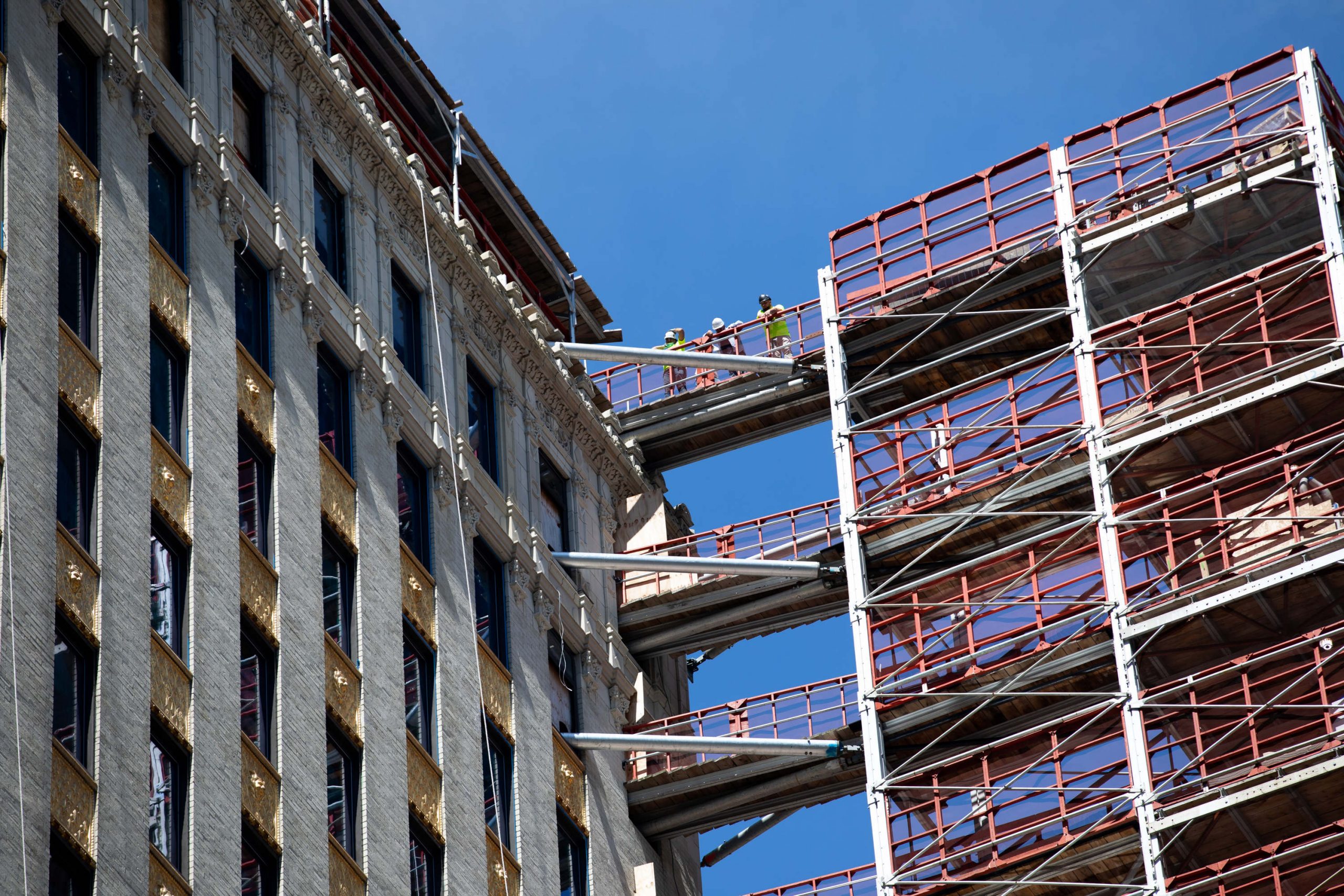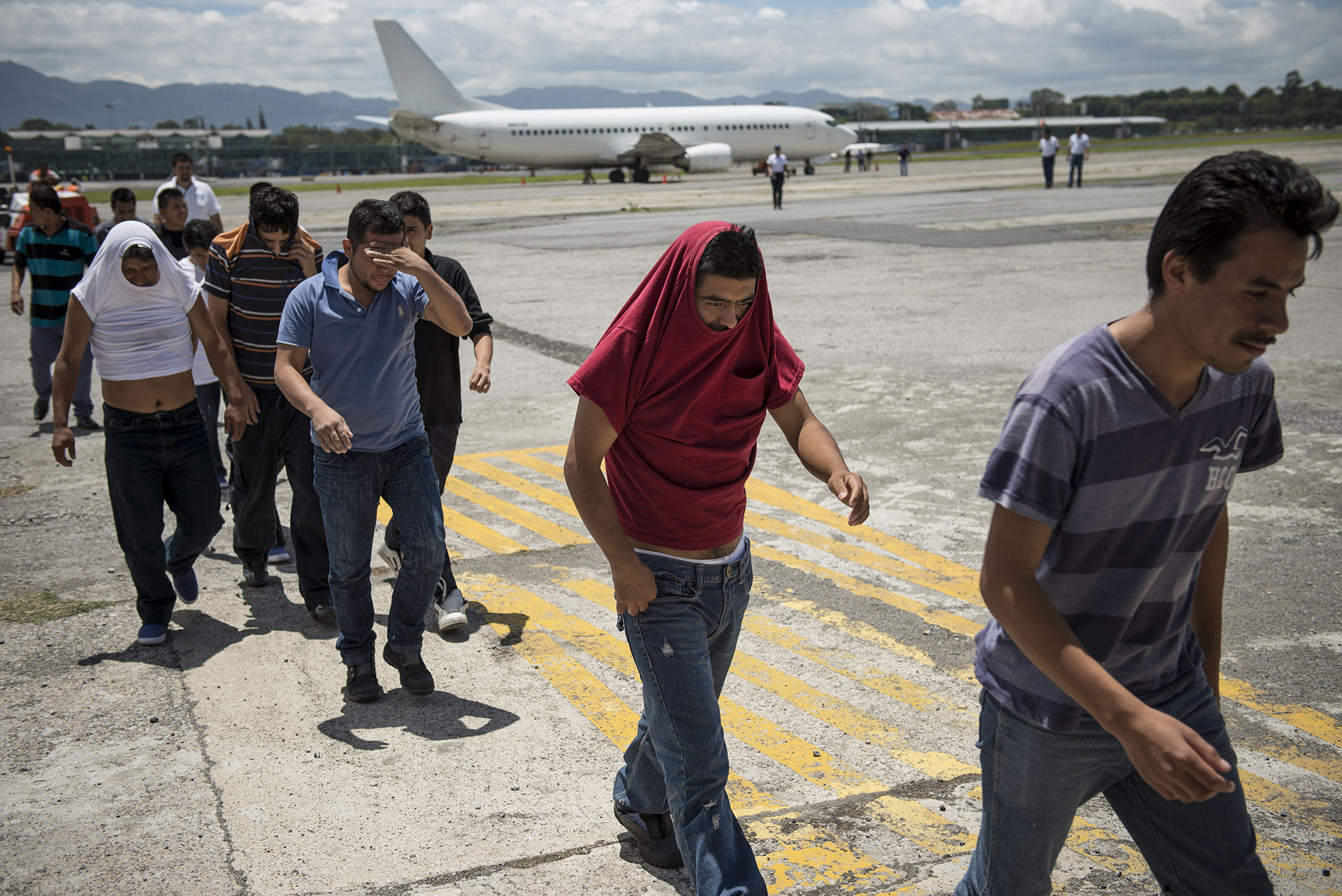Residents in Peekskill, New York, are reeling from the deportation of photographer Hazaea Alomaisi, a Yemeni man who was deported to the war-torn country last week.
Alomaisi was deported after going for a check-in with Immigration and Customs Enforcement, something he’d been doing for 22-years. He spent much of his time in the U.S. living in the Hudson Valley, where he took pictures of wildlife. He led bird photography tours in Rockefeller State Park and his friends said he was widely loved in Westchester and beyond
“This is a tragic loss and a horrible act of violence against our humanity and our community. Our support for him is unwavering and our prayers for his return will be unending,” said Paul Vincent, an administrator on the Peekskill NY in Pictures Facebook page. Alomaisi’s family and attorney said they are concerned for his safety as a conflict has been raging in Yemen since 2015 that has created one of the world’s worst humanitarian crises. Patch
Local
Immigrants held in Albany transferred to Batavia
Joseph Vicari, a freeholder in Ocean County, New Jersey, now goes so far as to say the state’s immigration policy could “destroy the union.” He joined a number of Republican officials who oppose New Jersey Attorney General Gurbir Grewal’s Immigrant Trust Directive, which blocks local law enforcement from working with ICE, save for certain exceptions. Ocean County, the state’s most conservative county, has filed a lawsuit to stop the directive. Vicari’s comments came during an agenda session held by the freeholder board, during which Freeholder Gerry Little said the directive asks them to violate their oath of office to uphold the constitution. Asbury Park Press
Lawyers Set Up Fund to Help Immigrants with Filing Fees
A group of immigration service providers are setting up a fund to help immigrants in need pay for filing fees with U.S. Citizenship and Immigration Services. The agency is increasing fees by 21% on average across multiple different categories. Citizenship forms would increase from $640 to $1,170, while the cost of applications for temporary visas for relatives of crime victims will see a dramatic rise from $230 to $1,285. USCIS argues the increases are necessary because it is a fee-funded agency. The rule says ICE will receive $207.6 million in fee revenue from the increase. Albany Times-Union
National
Border Patrol Separating Families in New Ways
When they arrived at the U.S.–Mexico border, David and his wife Mirza were told to wait in different lines. David and their 6-year-old son Sebastian waited in the men’s line, while Mirza and their 19-month-old daughter Lia in a women’s line. The family was soon separated more permanently: David and their son were sent to wait in Juarez, Texas, as part of the Remain in Mexico program, while the Mirza and the baby were released with an ankle bracelet and sent to San Jose, California. It would be weeks before they all saw each other again. This form of family separation has become more and more common on the border as agents are given more leeway to make arbitrary decisions. ProPublica
Local Governments Decide Whether to Accept Refugees
In a September executive order, President Trump gave local jurisdictions the option to accept refugees or reject them entirely. The areas had to register their interest to receive refugees at all, ultimately leading to local wrangling over the question across the country. A federal judge issued an injunction on Trump’s initial executive order, which delayed the deadline for opting in. Now local officials across the country are deciding whether they want refugees in their community — something most have never had to consider before. The New York Times
Census Bureau Plans to Estimate Citizenship Data
Even after facing defeat in the Supreme Court, the Census Bureau has started collecting citizenship data and, according to its chief scientist, can now accurately identify a respondent’s citizenship around 90% of the time. The bureau failed to add a citizenship question to the 2020 census after the Supreme Court found the agency was not justified in doing so. Trump then ordered the agency to find another way to get the data, so it’s augmenting census data with information collected by the Social Security Administration, DHS and state governments to estimate citizenship. Reveal
Mexico’s President Says Caravans are Waning
Mexican President Andrés Manuel López Obrador said Friday he expects migrant caravans to continue decreasing in frequency and size. His government enforced a violent crackdown on migrants traveling with a recent caravan from Central America, with National Guard troops meeting the migrants on the Guatemala–Mexico border with tear gas and riot gear. Many were detained and likely deported. On Friday, when another caravan kicked off in San Pedro Sula, Honduras, only a few dozen people showed up. President Trump threatened Mexico with tariffs if it did not stop caravans from reaching the U.S. Associated Press
Universities Concerned About Iranian Students
American universities are growing concerned about the number of Iranian students who have been turned back on flights after trying to enter the U.S. on valid student visas. At least 17 Iranian students have been deported from the U.S. since August, according to the Public Affairs Alliance of Iranian Americans. In previous years, one or two cases would come up for the group annually. With having a visa no longer a guarantee of being allowed into the U.S., universities are worried it could cost them top students. CNN
Washington — Trump Announces Additions to Travel Ban, Activists Slam White House Human Trafficking Event
President Trump officially added six countries to the travel ban list on Friday, four of which were African states. Citizens of Nigeria, Eritrea, Sudan, Tanzania, Kyrgyzstan and Myanmar will face varying degrees of restrictions on access to U.S. visas starting Feb. 22. Five of those countries have significant Muslim populations, while Myanmar’s Muslim minority is known for the intense persecution it has faced.
People from Nigeria, Myanmar, Eritrea and Kyrgyzstan will be banned from receiving immigrant visas. Sudanese and Tanzanian people will be barred from the green card lottery. The six countries join Iran, Libya, Somalia, Syria and Yemen, Venezuela and North Korea on the list of countries that were part of the original ban the Supreme Court upheld in 2018. The administration argues these bans are necessary for security reasons.
Nigeria, Africa’s most populous country, will likely be the hardest hit by the rule, as 7,920 immigrant visas were granted to Nigerians in the 2018 fiscal year. There are about 327,000 Nigerians living in the U.S., making them the largest African diaspora in the country, and they are known for being among the highest educated immigrant groups. The Trump administration had previously made it harder for Nigerians to get visitor visas, and The New York Times reported Trump once said Nigerians who set foot in the US would never “go back to their huts.”
The Nigerian government pledged to address the security issues the Trump administration cited in its decision to include it in the list. Nigerian President Muhammadu Buhar said he established a committee to “study and address” the requirements. Meanwhile, the Eritrean government expressed “dismay at this unfriendly act” on Sunday. The country’s information ministry said the decision to include Eritrea was made “without justification to send a negative signal.” Associated Press, The New York Times, Vox
President Trump held a human trafficking summit at the White House on Friday with top administration officials and his daughter Ivanka Trump. His administration has drawn the ire of activists who say its previous efforts on the issue have made it harder for victims of human trafficking to apply for visas, and that the administration has been dismissive of claims by women and children. The New York Times














